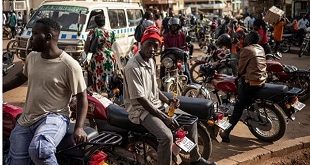
By Rukiya Makuma
It is 50 years since Amnesty International, one of the leading international human rights advocates, first started issuing annual reports about the state of human rights in countries around the world. The agency recently issued its 50th report and Michelle Kagari, deputy programme director of Amnesty International Africa Regional Office, spoke to The Independent’s Rukiya Makuma .
If you are to rank countries n human rights and freedom of expression how would you rank Uganda?
Amnesty International does not rank countries because each has its own positives and negatives. The Arab Spring resonated with many countries in Africa. Many people rose up against their governments, but all the protests were brought down brutally. In Uganda Dr. Kiiza Besigye and other opposition politicians were brutally arrested and held under preventive arrest to keep them from exercising their rights.
What do you think should be done?
People need to learn that the desire to enjoy their rights is not a Western myth or misconception; it is a right. People have stood in the paths of death to fight for this. Times are changing and the weak and vulnerable, who had been oppressed by the mighty in power, have realised that the status quo is unfair and they are paying for the crimes of the mighty. African Leaders should learn that the citizen uprisings of 2011 occurred because they failed to protect the rights of those who had been oppressed for long.

What are the main findings of your latest report?
Globally, there has been a lot of citizen discontent, underlain by popular unrest in Africa and an economic crisis in Europe. The uprisings highlight the failure of the UN Security Council and NATO, and their selective response in countries with uprisings. In Africa, civil society organisations have become more sophisticated, demanding for accountability from their governments. There is evidence that Africa’s poverty rates have been falling and while progress has been made in realizing the UN Millennium Development Goals over the past decade, millions are still living in poverty, without access to essential services.
In Uganda, space for free expression is increasingly shrinking, making it more difficult for people to enjoy their rights. In the run-up to the February 2011 presidential and parliamentary elections, the opposition found it hard to access airwaves or buy space in media stations; prior-booked shows were cancelled at the last minute and upcountry station owners were intimidated. The many media bills that have been tabled in Parliament have only proved the increasing desire by government to limit the dissemination of information to the public.
What must people do to secure their rights?
Evidence from Egypt and Libya shows that once people gather to attain a common good, they can succeed. People should not sit back. They need to challenge the laws that infringe on their rights. Uganda is lucky that its judiciary is still independent considering the many conjured up cases that had been brought against senior journalists like Andrew Mwenda were thrown out. Victories like that provide an avenue for people to demand their rights. There should be continued engagement between citizens, law enforcers and the rest of government, and increased awareness of the wrongs being committed.
Why do journalists appear to have become a Number One enemy of the state?
The role media plays in exposing crimes to the international community makes journalists susceptible to harassment. Evidence shows that the more intolerant a government, the more suppressive it becomes of bodies it considers a threat. In all the uprisings in Africa, three groups have been singled out as the most targeted governments in power – the media, opposition politicians and civil society. Once these three are suppressed, the rest of the world won’t know what is going on.
What is your take on the Public Order Management Bill, which seeks to regulate public meetings?
It is not consistent with the guaranteed rights of Ugandans as it restricts people from expressing their views.
Amnesty has been issuing human rights reports every year for 50 years now. Are you making any difference?
Over the past 50 years we have seen human rights move from the margins to centre stage of world affairs. But governments continue to use human rights only as rhetoric while they sponsor brutal repression, often with complete impunity. More than a billion people live in extreme poverty, facing numerous abuses. In two-thirds of the world’s countries security forces torture and ill-treat detainees. These challenges can be met if people work together for positive change. Of course the ultimate responsibility for delivering human rights, bringing powerful corporations and armed groups to account, lies with government. But our 50 years’ experience tells us that ordinary people united in common action can achieve extraordinary things. Ordinary people taking to the streets with extraordinary courage in the Arab Spring are a living testament of our dream.
What has been your biggest achievement over the past 50 years?
We have created real social change by exposing repression and injustice, showing that ordinary people can unite for freedom and justice. Our campaigns have helped secure the release of thousands of prisoners of conscience; make torturers international outlaws; end the impunity of powerful criminals and push governments to abolish the death penalty. We were a leading campaigner in the estab lishment of the International Criminal Court.
 The Independent Uganda: You get the Truth we Pay the Price
The Independent Uganda: You get the Truth we Pay the Price



